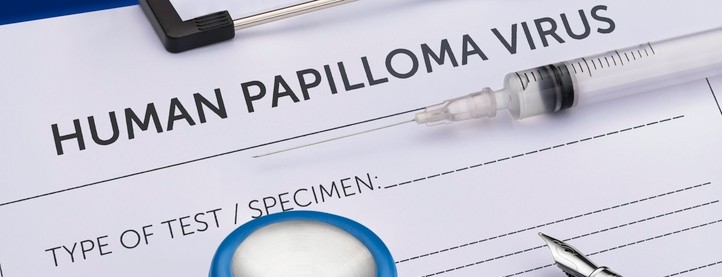
The latest efforts in cervical cancer prevention
Cancer Center expert featured in Medical Laboratory Observer Q&A
Medical Laboratory Observer interviewed the University of Cincinnati Cancer Center's Leeya Pinder to discuss the current state and future of cervical cancer prevention.
Cervical cancer is preventable through vaccination for human papillomavirus (HPV) and treatable through early detection, so Pinder and others in the field are focused on improving HPV testing and accessibility. This includes researching different self-collection testing models and novel outreach efforts such as partnering with the 513 Relief Bus to bring screening access directly to the community.
"We can provide this screening in the community for women who haven’t been screened lately, and it gives them the opportunity to self-collect," said Pinder, MD, a Cancer Center member and associate professor in the UC College of Medicine Department of Obstetrics and Gynecology, Division of Gynecologic Oncology. "When we receive the results back, we can provide education, and if needed, connect them with a clinic if there is a need for further management."
Pinder said pap testing is recommended every three years, and primary HPV testing is recommended every five years if tests are negative. Additional testing recommendations can vary based on each individual's family history and any abnormalities found in their tests.
"The important point I always mention to people is that it is important to come in for the well-woman checks because there are other things that we talk about and there are other health challenges that we want to address," she added. "It is important to understand that it is not just the screening that your clinician does but the whole person."
Read the Medical Laboratory Observer interview.
Featured photo at top of HPV test form. Photo/iStock/Sefa Ozel.
Related Stories
Social media linked to student loneliness
February 20, 2026
Inside Higher Education highlighted a new study by the University of Cincinnati that found that college students across the country who spent more time on social media reported feeling more loneliness.
Before the medals: The science behind training for freezing mountain air
February 19, 2026
From freezing temperatures to thin mountain air, University of Cincinnati exercise physiologist Christopher Kotarsky, PhD, explained how cold and altitude impact Olympic performance in a recent WLWT-TV/Ch. 5 news report.
Blood Cancer Healing Center realizes vision of comprehensive care
February 19, 2026
With the opening of research laboratories and the UC Osher Wellness Suite and Learning Kitchen, the University of Cincinnati Cancer Center’s Blood Cancer Healing Center has brought its full mission to life as a comprehensive blood cancer hub.
